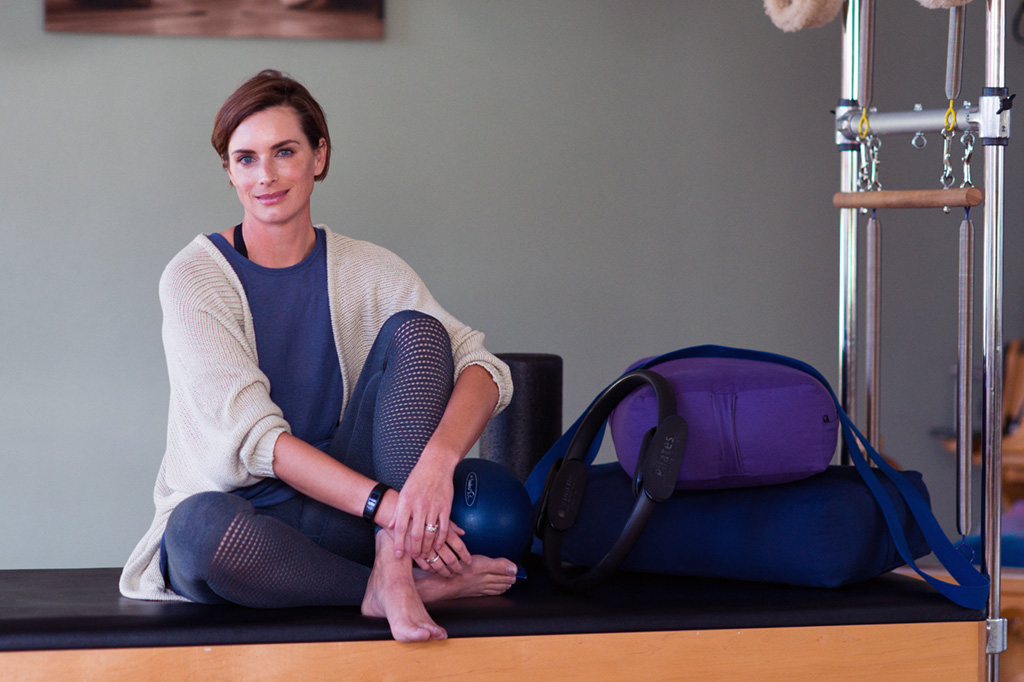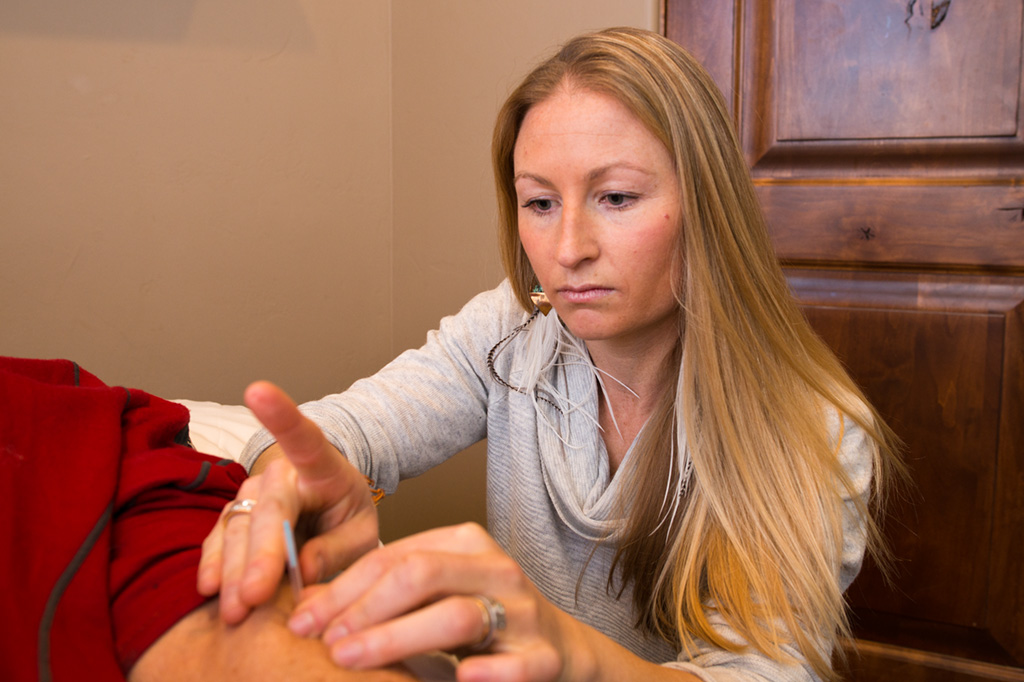Let’s face it; people who live in the Wood River Valley are active pretty much year-round. Premiere ski runs, awesome bike tracks, perfect summer golf weather, and miles and miles of hiking trails keep residents on the go. The flip side is that all of that activity often leads to serious wear and tear.
Hailey chiropractor Sean O’Grady is personally familiar with that sort of debilitating pain, having at one time been a professional hockey player. It was O’Grady who came up with the idea of Tune Up, a local membership-based health care group that has brought together an entire team of local providers to deliver ongoing monthly services at the convenience of their members.
The focus of Tune Up is on musculoskeletal treatment: massage, acupuncture, chiropractic, yoga, Pilates, therapeutic bodywork and stretching, and physical therapy. They also offer the services of a health coach and phone consultations with a nurse practitioner. Members receive four, 30-minute visits per month with any of the providers on the Tune Up team, unlimited conversations with a health coach, messenger chats with the member’s team of care providers, and repeating appointment times. Individual drop-in appointments are also available for a flat fee. Memberships are available in one-, three-, six- and 12-month packages.
Bringing back neighborhood health care
The idea first came to O’Grady several years ago in San Francisco, when he started thinking about how health care was being delivered. “I was really interested in bringing health care back to the neighborhood, back to that old corner doctor’s office that I had grown up with,” he said. “A handful of providers got together and began to innovate different styles of practices to try and make health care more transparent and accessible for people in our neighborhood. I learned it was possible and advantageous for both physicians, and consumers, to have simple businesses so all the attention is put on helping people get better.”
When O’Grady moved to the Wood River Valley in 2016, he started Tune Up. “The concept was simple,” he said. “If you came to me with a musculoskeletal problem I would take care of it for about $100 per month, for four visits. If you needed to come more, we would figure it out as you went. And it worked. People tended to get better, and they enjoyed the idea of paying once and everything was taken care of for them.”
It takes a village…
From there, O’Grady brought on providers in acupuncture, yoga, massage, and more, continuing with the concept of ongoing monthly access to a variety of therapies and services. “These types of services do work for people, but when done individually, they are sort of one-offs, like trying to build your own health care plan piece by piece,” he said. “You never know if one provider is talking to the other, or if they are on the same page, or how you’re going to pay for it all separately. So we thought, let’s get rid of all that and make it really easy to engage with one health care team.”
Currently, Tune Up works with a team of eight providers throughout Hailey who have their own offices. “They wanted to be a part of the Tune Up community to work as part of our team,” O’Grady said. “We sort of hand pick our providers who are already well established in the community to help take care of Tune Up members.”
If you play hard you will have some wear and tear
Erin Hill, who has been with Tune Up for about a year and a half, has had her own acupuncture practice for about five years. She sees Tune Up as a way to create the right environment so people are consistent with their self-care.
“Being in such an active valley, if you are willing to play hard and use your body hard, you are going to have some wear and tear and this helps to keep people moving,” Hill said. “Tune Up is set up to teach people to be more body aware about things that may cause problems down the line. That has resulted in us having really consistent members for more than a year now, who come three to four times a month to maintain.”

Before joining Tune Up as a partner, Pilates and yoga instructor Jacqui Terra was first a client. Photo by Chris Syms
First a client, now an instructor
Before joining Tune Up as a partner, Pilates and yoga instructor Jacqui Terra was first a client who sought therapy for what she calls a bum shoulder. “I got on a regular rotation of chiropractic, acupuncture and massage and it took about three months, but all of a sudden I remember waking up one day and moving my shoulder and the mobility was better, and it felt good. I kind of thought that was pretty miraculous, because I had sort of written my shoulder off,” she laughed.
“Self-care is a non-negotiable,” said Terra reflecting on her own treatment experience. ”Everything shifted. My body felt better. I started to feel more of my own value. It is so much deeper than just the physical when you really start to honor and take care of your body, mind and spirit.”
Tune Up integrates with traditional health care
O’Grady stressed that the program does not take the place of primary health care. “We are one piece of the puzzle,” he said. “We specialize in musculoskeletal problems. We are not surgeons and we can’t take someone all the way from their broken leg from a fall on Baldy through their surgery and doing all the rehab. But we typically are the next step after an acute injury takes place.
“We do a good job of working with others,” he said, adding that they refer clients to physicians, pharmacists and other providers and work together as an integrated system. He noted that Tune Up is considered an “out-of-network” provider and its monthly membership fees are not covered by traditional insurance. However, if a person’s insurance does cover a specific out-of-network therapy, for example chiropractic treatments, patients can utilize Tune Up’s individual drop-in appointments and Tune Up will bill the insurance company. If covered, the insurance company will reimburse the client for the charges.
Divorcing a purchasing decision from a health care decision usually results in a better health care decision, noted O’Grady. “If I don’t have to think and agonize over every single service I want to engage in because I’m worried about how much it will cost, typically my decision making will be better,” he said. “Tune Up members average about three and a half to four visits per month. They are engaged regularly and make Tune Up a habit because we have made it easy. What we tend to see is fewer chronic problems over time because we get ahead of them.”


